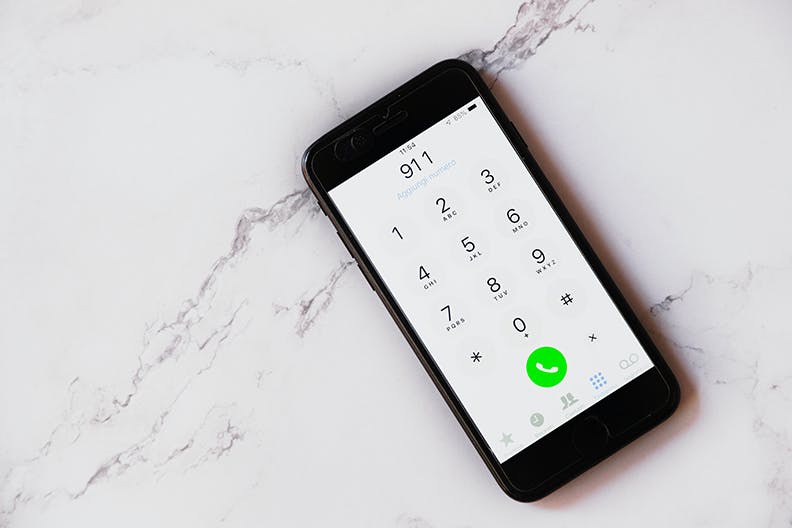
If you were asked what kind of job required the most mental resilience, split-second decision making, and the ability to calm people in the worst moments of their lives, you might immediately think of a hardened marine or a practiced physician. While these jobs definitely fit that description, another one of the most stressful jobs in the modern world today is a 911 dispatcher. As detailed by ABC News, dispatchers experience a great deal of psychological trauma due to the calls they receive on a regular basis.
As you can imagine, the amount of calls each call taker answers every day can be staggering, as well as the amount of calls they receive that are false or accidental calls. Roughly 2.4 million 911 calls are received every year in the United States, with roughly 15-20% of those calls considered as “non-emergency calls”.
Despite all of this, 911 and emergency response have become integral to modern life.
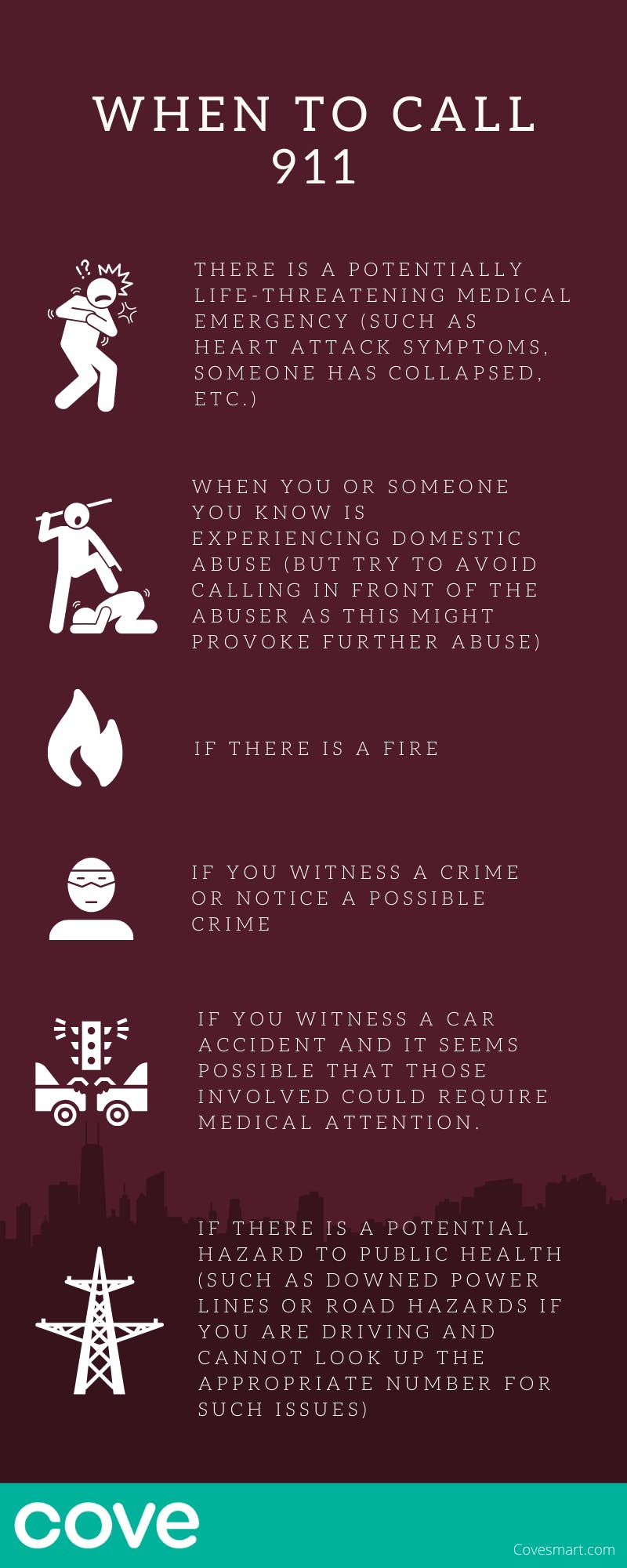
How Should I Use 911?
911 should be used for an emergency situation. If you get into a car accident, it is safe to say that calling 911 in a fender bender is optional; if anyone is seriously injured and needs medical attention, 911 should be called. It is appropriate to call authorities if your car is broken into to file a report your insurance can use. If you or someone nearby is in mortal danger, 911 should be your primary contact for assistance.
To say that you can call 911 during emergencies is simple enough. But how can you judge what constitutes a real emergency? According to FactRetreiver.com, we can define a “true emergency” as a “life-threatening situation where every single second counts”.
Situations Where 911 Should be Called
While a dispatcher can differentiate between crime and a medical emergency, each 911 call is unique because of the circumstances and the people experiencing the incident. Sometimes the caller is calm and collected. Other times, the caller is frantic or unable to give proper information such as location, names, or exact details. The key to making an effective 911 call is remaining calm and giving the right information.

Domestic Abuse
It’s November 2019 when the Oregon, Ohio dispatch office received a 911 call. Tim TenEyek, the dispatcher receiving this particular call, was told by a woman on the line that she needed to order a large pizza. Pranks, inappropriate calls, and accidental calls are a frequent occurrence for 911 dispatchers (as the University of Arizona reports) so TenEyek instructed the woman on the line that this was the wrong number for such a thing.
But the woman insisted, and she insisted in a way that made this dispatcher recognize that something else was going on: this was not a call for pizza, but a call for help. Through rather clever responses, the woman confirmed her address and answered TenEyek’s questions with replies sounding as if she were indeed ordering a pizza. When police arrived, they discovered that her mother’s boyfriend had come home drunk and began assaulting the mother, threatening more violence. The man was arrested and charged with domestic violence, saving the caller and her mother from further harm.
Domestic violence is an immediate threat and nothing to take lightly. Some involve serious crimes such as sexual assault. If you are a victim, avoid letting emotions get in the way of getting you and your family away from the danger. Calling authorities in the presence of the abuser is a unique case though. If you are in such a situation, unless in mortal danger, allowing your attacker to know that you are calling 911 may incite further violence. Some believe that acting against the perpetrator will only incite revenge or further harm. But that is why law enforcement and courts exist: to prevent further abuse against you and your loved ones.
Medical Emergencies
When handing your child your phone, you may think nothing of them playing games or watching videos. You may even not think it wise to show your child how to quickly contact emergency services with short-cuts that come standard with every modern mobile phone (including the ones that do not require your telephone to be unlocked to access). Prank calls or false alarms are common with children, although such times can be teachable moments for them.
But for one four-year old boy living in Iowa, calling 911 became a matter of life or death for his mother. In 2011, the boy’s mother fell unconscious while sitting on the couch, and the boy was unable to wake her up. This remarkably calm boy called 911 with a cell phone and told the dispatcher on the other end that: “Mommy’s passed out”. He waited patiently while talking with the dispatcher until he could hear the sirens on the police cars. With help from the mobile phone’s GPS signal, law enforcement was able to pinpoint the boy’s location and save the boy’s mother before her ailment could do lasting harm.
When teaching kids about 911, the first thing is to teach them not to call 911 unless it is an emergency. Teaching them and quizzing them regularly on your home address can help them in a situation where medical responders or police need to come as fast as possible. As technology improves, however, even the youngest child can call 911 using a cellular telephone with GPS tracking. When aware of the resources available to them in times of need, children can be very level-headed and vital in getting their loved ones urgent care. Websites such as 911ForKids.com offer tools and books suitable for young children that can teach them the basics of the 911 system.
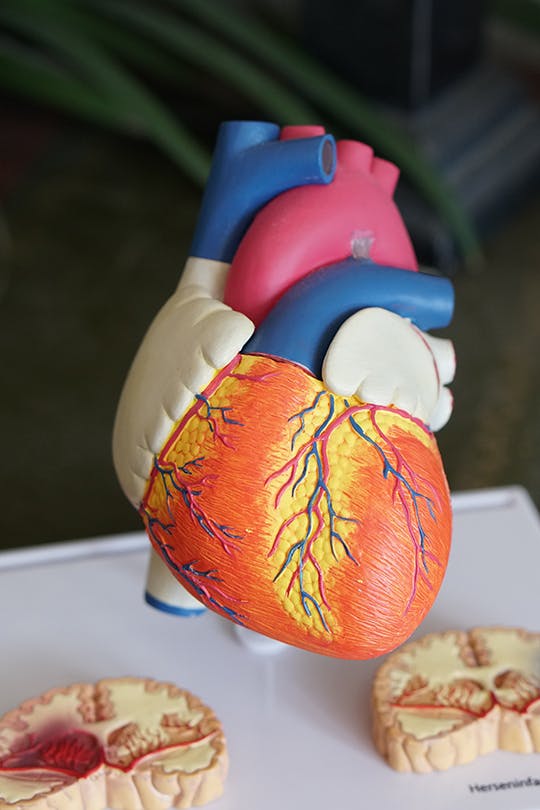
If You Are Experiencing Heart Attack Symptoms
As published in a medical journal called Circulation, researchers conducted a study of cardiac arrest victims that chose to receive care from the emergency room. They recorded that of the 900 victims that received such help, only 23% elected to use emergency transport to get to the hospital. 60% had someone drive them to the emergency room, and 16% actually drove themselves. Worse (and unbelievable that there could be worse), 83% chose to call their primary physician instead of calling 911.
A Heart attack can certainly come on suddenly. But most are preceded by medical indicators that can be mistaken for other maladies. These include:
- Pressure or aching pain in the chest and arms that can spread to the back or upper neck
- Shortness of breath
- Chest discomfort
- Cold sweat
- Sudden fatigue
- Lightheadedness or dizziness
Symptoms vary from person to person as well; some may experience little pain with the actual attack slowly building, while some feel intense chest pain and sudden cardiac arrest. While it may be difficult to identify the problems if you have never experienced an attack before, it is a good idea to monitor your health and watch for these collective issues. Cardiac arrest is caused by angina, a decrease of blood flow to the heart.
If you recognize, before cardiac arrest, that you or someone else is having a heart attack, there are a few things you can do to provide immediate assistance in addition to calling 911. First, take heart medication prescribed by your doctor in case of the event. If you do not have anything from your doctor, taking aspirin can prevent blood clots and reduce the damage to the heart. Aspirin is not a remedy though: when the signs appear, call 911 immediately.
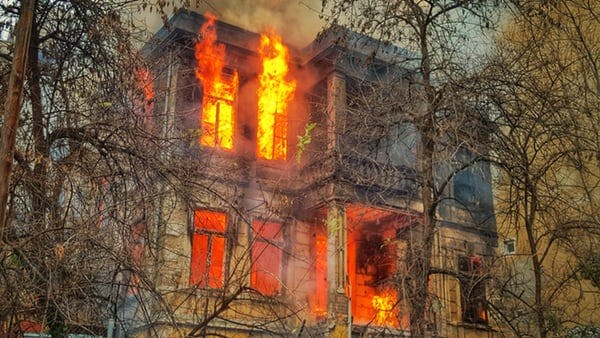
Fire Related Emergencies
The fire department is a unique arm of public safety because of the myriad of skills and abilities firemen and EMTs (or emergency medical technicians) are trained for. When providing aid to businesses and homes, not only do they have to have the knowledge and experience to fight the most intense blazes, they have to be able to provide aid to any residents or people that may have escaped safely. They even jump into the fire themselves to save any people who are still trapped within.
Any first responder to an incident takes the initiative to provide emergency help and provide for those who are suffering. Fire department responders also provide medical relief and emergency relief in many different situations, including car accidents and emergency care. More than one firefighter has been at the scene of childbirth (and even assisted with it), for example. And in times of intense conflict, EMTs and paramedics provide assistance to staunch severe bleeding, set broken bones, and prevent victims from further injury and harm.
Other Situations Where You Are Unable to Call 911
We’ve mentioned several cases when you should call 911, but what about those situations when you might not be around or physically able to call 911. If you’re away from your home and someone breaks into your home, you have no way of knowing that that has happenned unless you have a security system. With a Cove security sytem you’ll be notified of the break in and so will 911 so that they can check on your property.
If an elderly person falls it can often cause severe injury and keep them from getting up and calling 911. If the elderly loved one has a medical alert necklace though then they can simply press a button that will alert the authorities that they need help. If you or a loved one is of advanced years then considering investing in a Cove medical alert necklace.

Features Unique to 911
The number for 911 is unique for a few reasons:
- 911 can be called from almost any wireless phone, even those that are not connected to a wireless plan. If you are calling from such a phone, it is of vital importance to stay on the line with dispatchers as they will be unable to return your call should it be disconnected. With that in mind, no telephone should be truly disconnected unless its battery is removed or drained. Children can sometimes play with such phones and accidentally call 911.
- VoIP (or Voice-over-Internet Protocol) was developed as a digital phone service, and many companies wanted to offer the service as an inexpensive way to connect to public services. Popular programs that utilize VoIP technology include Skype, Google Voice, and the Facebook Messenger online call feature. Laws have limited the technology, but the effectiveness of the protocol service is slowly convincing the government of its usefulness. When connected to a VoIP provider, 911 can pinpoint the caller’s location on a specific floor of an office building.
- The ability to send texts to 911 is being developed in specific locations across the United States. To find out if your area is part of the system, you can check using a monthly-updated document on the FCC website. This service is fantastic for emergencies when calling and speaking to 911 is impractical or even dangerous. FCC laws state that as soon as 911 centers request text-to-911 services, messaging providers are required to set up such a system within six months.
- Telephone providers often charge for access to emergency numbers. This is not necessarily the fault of the companies themselves, as laws have passed that require such payments to support local 911 stations and call centers.
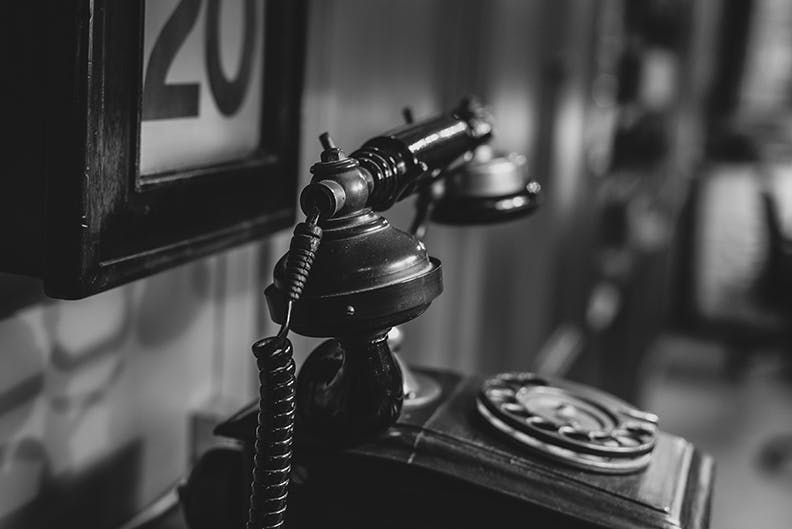
When Was 911 Invented?
Before 1968, there existed no universal number for emergencies. Residents in their individual communities had to rely on telephone numbers of local operators. Unfortunately, the quality of these services varied greatly, especially during times of heavy use. To fix this, the FCC (or Federal Communications Commission) made a deal with AT&T and Bell Industries in 1967 to establish an emergency number that could be used across the United States, a short number that could be memorized by anyone. 911 had never been used as an area code prior, so the number was chosen. It is speculated that 911 was also adopted because of the ease of dialing two ones on rotary telephones (although the nine might put a damper on that theory).
Surprisingly, the 911 system took a longer time to spread than you might imagine. By 1987, about half of the states in the Union had adopted the system, and by 1999, 93% of the country was connected. By this time, Mexico and Canada had also chosen 911 as their emergency number. Today, coverage extends to about 98.7% of people in the U.S.
